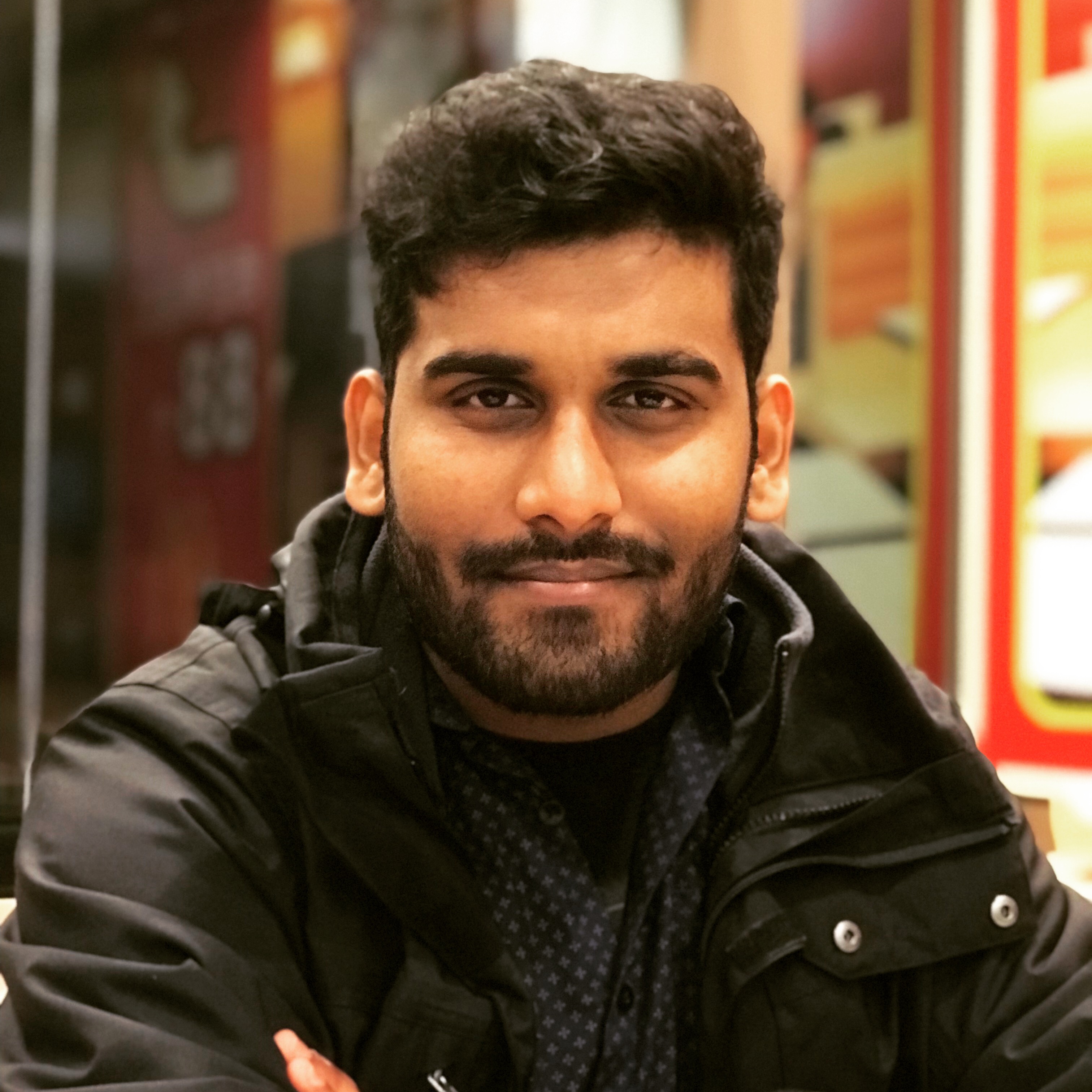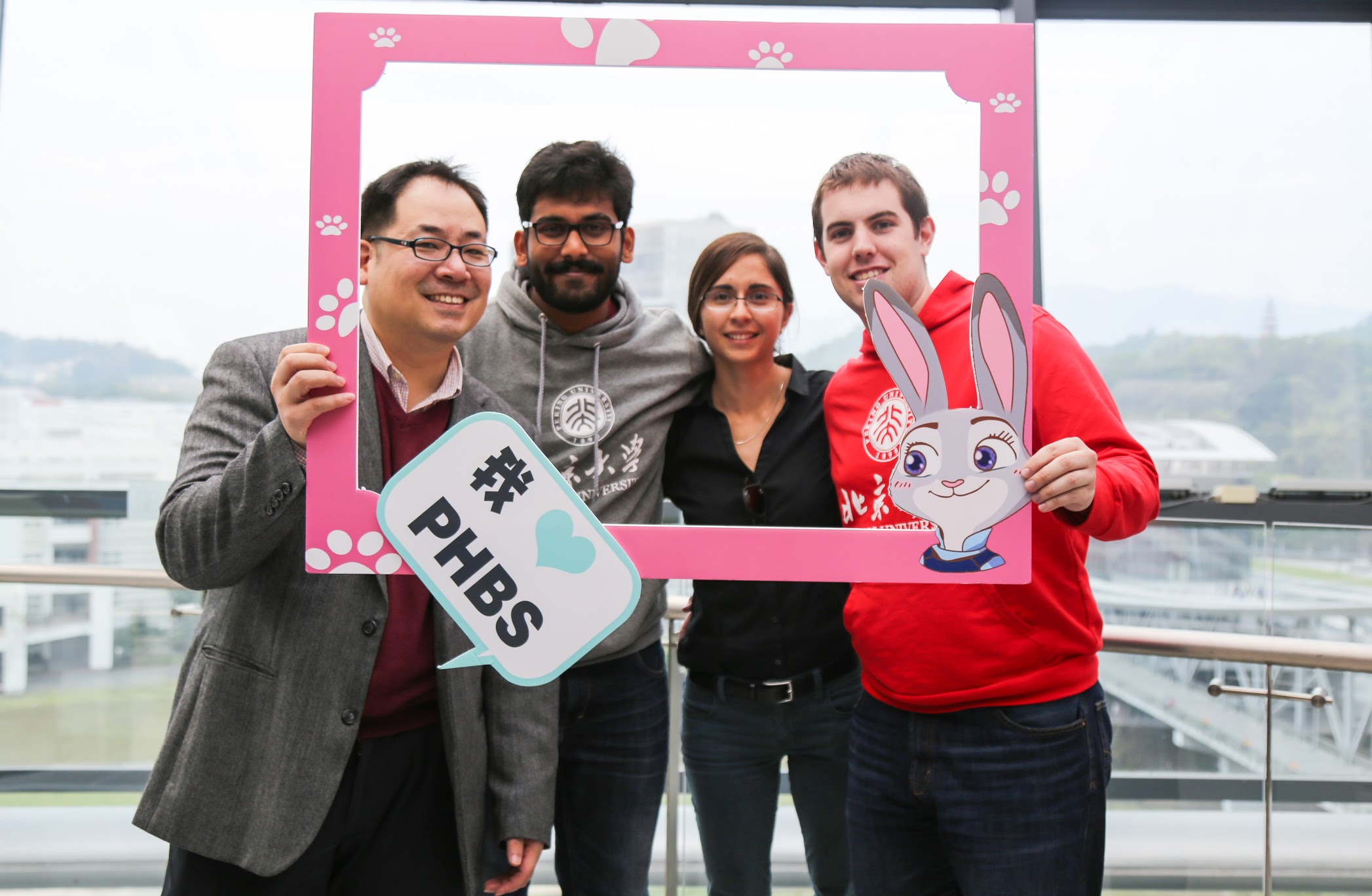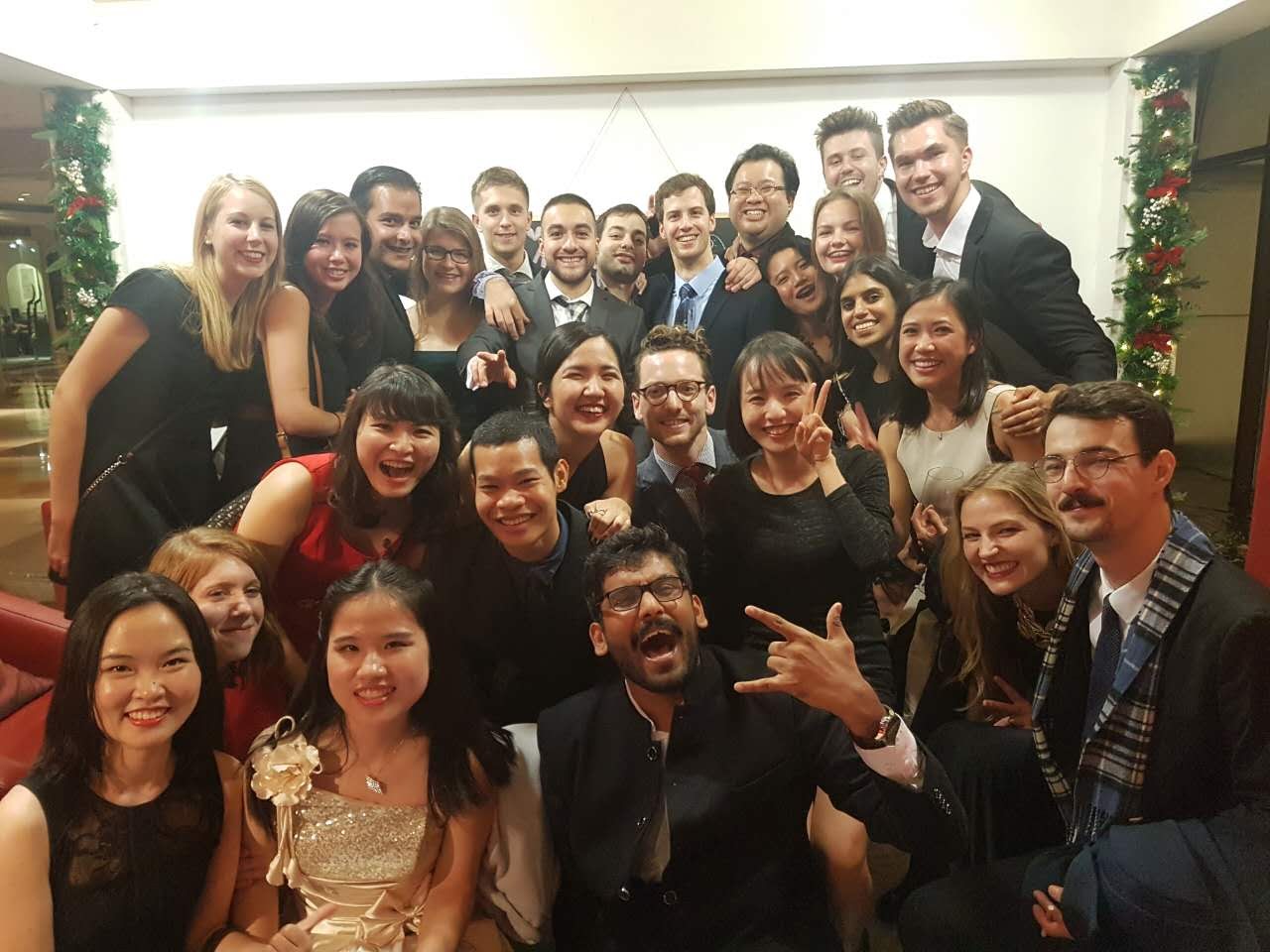 Mahesh Reddy, PHBS economics student
Mahesh Reddy, PHBS economics student
“I’m going to tell you everything that happened here!” Mahesh Reddy, economics student at Peking University HSBC Business School (PHBS) was beaming as he sat down—and for a good reason. The day before, Mahesh had turned in the thesis draft he had been working on relentlessly all summer. Still in a state of blissful shock, he seemed thrilled to recount the story now that the ending felt near and real.
“It starts withni hao,” he chuckled.
Mahesh is from India. And like the majority of international students who come to study in China for the first time, he was full of naivety and openness upon arrival, and acknowledged his understanding of China was rudimentary at best. Coming to a place which promised to be so different required a bit of a leap of faith. “You can either be scared or excited,” he says about engaging with something new. He treats this mindset like a formula: the more extreme the unfamiliarity, the more intense his excitement.
“You can either be scared or excited.”
Mahesh Reddy
The possibility of constant discovery is what attracted him to China. Not only was he arriving in a country of 1.5 billion strangers without knowing the local language, but he was also entering a new terrain academically. He had never taken an economics class before in his life.
Mahesh has been passionate about learning and exploring since a young age. He says as a boy, numbers were “magic” that seemed to provide answers to the world around him. He tried to master their spells. When he was 17, he had his first taste of discovery. He asked his math teacher about a problem for solving the summation ofnpower of numbers and the teacher replied that the formula did not exist. “I didn’t sleep some nights trying to solve the problem,” Mahesh recalls. Fortunately, shortly before an interview to enter the Indian Institute of Science, Mahesh had a breakthrough and discovered the equation. As a kid excited about his accomplishment with visions of television interviews and national praise, Mahesh brought his equation to the interview panel of the university. It was here he had his second discovery. After presenting the work, an interviewer replied, “Ok, son, that is good, but it had already been solved 400 years ago.” His dreams of fame and national praise were shattered, but it was still enough to impress the judges and earn him a spot at the prestigious university.
Mahesh continues to be driven to explore and learn. He often says he just likes to “play”, which is how he describes the academic and intellectual challenges he pursues. He arrived in China “clueless”—no working phone, no internet, and a feeble command ofni hao.
He remembers early days in China by the delightful discovery made. Day one is remembered as the day he “discoveredwaimai” (food delivery). Day two is the day he discovered IKEA and more importantly the Swedish meatball. Day three? That was the most significant one of all—the day he “was introduced toshaokao” (Chinese skewer barbecue).

Though he was loving China already even before the classes began, the true playground for him was the classroom. Before arriving at PHBS, Mahesh had vigorously studied math, majored in physics, completed a thesis related to “aerospace and mechanical engineering”, and done lab work in a molecular biophysics lab with poisonous snails. Last but not least, on one of his frequent trips to the library, he serendipitously picked up a book on the fundamentals of economics. Contrary to what you may assume, it wasn’t love at first sight. Instead, for Mahesh, economics was something much more intriguing: mystery at first sight, with a little bit of math to complement its appeal.
If it was math that Mahesh was after, his first semester as an economics student at PHBS was sure to satisfy. During the first semester, he enrolled in advanced microeconomics with Professor Yang Xu, a notoriously demanding class for economics students. It lived up to its reputation. Even a lifetime lover of math like Mahesh was challenged and tested. Yet, once again, numbers had a little magic in store for him.
Mahesh had already learned a few sleepless nights plugging away at equations was not going produce the perfect solution. Luckily, he had been placed in a workgroup with Jay Kang, a Chinese classmate, who seemed to grasp exactly what the problem called for. “He helped me solve the whole problem,” said Mahesh. Once the work was out of the way, there was time for the important stuff. Mahesh and Jay realized they had a mutual love of action movies andshaokaoand this quickly sparked what Mahesh says is undoubtedly a lifelong friendship. When Mahesh started hanging out with Jay and his roommates, along with another international student, Javier, over lamb skewers and Tom Cruise movies, the group bonded quickly. “We call each other bros. I even learned the Chinese wordgemen,” said Mahesh, before he dove into a description of the favorite film he saw last year, Wolf Warrior 2.
“Growth at Peking University is exponential, it just shoots to the sky.”
Mahesh Reddy
He was winning the tough battles in the classroom and had a new group of companions at his side. Mahesh was loving his first year at PHBS. He arrived at Peking University an “empty page” and was quickly filling in the blank space. Because Mahesh was the only Indian full-time student in his class, he was “learning about the east and learning about the west.” Everyone he met was coming from a different culture and offered new ideas. Mahesh summed it up by saying, “Growth at Peking University is exponential, it just shoots to the sky.”
Of course, this pace of learning requires a serious amount of dedication and hard work. Those around him, including faculty, quickly took notice and recognized him for his efforts. In 2018, PHBS awarded Mahesh the prestigious Wen Hai Scholarship. The scholarship is given to a very select group of 2nd-year students each year and is based on outstanding academic performance and contributions to the school community.

Looking back on his time at PHBS now that it is almost over, Mahesh says it is going to be hard to leave: “I’m telling you. Even after two and a half years of my life, the best time of my life was here.” As for what comes next, Mahesh says he hasn’t made any firm decisions, but his mindset hasn’t changed—the focus is still on exploring. Even with his numerous academic accomplishments, Mahesh humbly insists he is “just growing up.” He has already enrolled in intermediate Chinese language courses; he’s been spending days in the finance lab at PHBS picking up the software to execute complex market data analyses and talked about investing in bananas; he also says he will eventually return to his family in India; finally, he is entertaining the idea of studying for a PhD in the United States.
Mahesh mentions all this, and gets caught thinking about quantum physics. It is another one of the “magic” phenomena of the world that fascinates him. When he gets distracted by one of his favorite subjects, he attempts to convey the wonder of these complexities of life and nature. “[In] classical computing a bit is either 0 or 1. For a quantum computer, it is 0 and 1. It exists in a superposition of states,” he explains. It is something Mahesh may go on to master, while I remain in a state of confusion and fascination. Though I do understand its appeal, especially to Mahesh. In a world full of computer bits forced into choosing between zero or one, there will come along a new bit that can contain both at once. To a passionate learner like Mahesh it must seem like the ultimate fantasy. However, following a conversation with him, one can sense that superstate may already exist within some people. Maybe it is the computers that need catching up.
ByNathan Faber